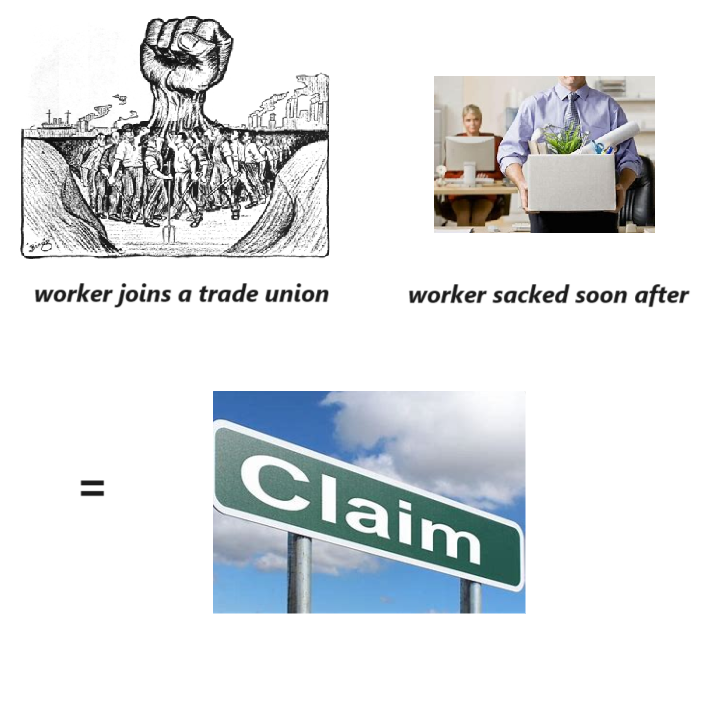Fitzpatrick v British Railways Board [1992] ICR 221
Citation:Fitzpatrick v British Railways Board [1992] ICR 221
Link to case on WorldLII (reference).
Rule of thumb:If a worker joins a trade union and is sacked soon after, do they have an unfair dismissal claim? If a worker joins a trade union and is sacked soon after by an organisation, then as a general rule the Court will presume that the real reason for the sacking was the worker joining the trade union & that the other reasons provided are vexatious.
Judgment:
Dismissing someone for being a member of a trade union or taking part in lawful trade union activities is unfair dismissal, ‘The reason that the majority of the industrial tribunal did not address the critical question is probably because of their understanding of the Beyer decision [1977] I.R.L.R. 211 . They say, having examined that decision, that so far as proposed activities are concerned it must, and I quote: “involve some cogent and identifiable act and not some possible trouble in the future.” In other words the industrial tribunal are saying that in order to comply with the provisions of section 58(1)(b) there must have been some activity on the part of the employee to which they took exception, which was not a mere possibility but something which was sufficiently precise to be identifiable in her present employment. In my judgment, to adopt this approach is to read into the language of section 58(1)(b) a restriction which Parliament has not identified. To limit the language, in the way which the industrial tribunal did, would prevent the actual reason for the dismissal in a case such as this from being considered by the industrial tribunal. As long as the reason which motivated the employer falls within the words “activities that the employee … proposed to take part in,” there is no reason to limit the language. The purpose of the subsection, in so far as (b) is concerned, is to protect those who engage in trade union activities and I can see no reason why that should not apply irrespective of whether the precise activities can be identified. If an employer, having learnt of an employee's previous trade union activities, decides that he wishes to dismiss that employee, that is likely to be a situation where almost inevitably the employer is dismissing the employee because he feels that the employee will indulge in industrial activities of a trade union nature in his current employment. There is no reason for a rational and reasonable employer to object to the previous activities of an employee except in so far as they will impinge upon the employee's current employment’, Woolf LJ.

Warning: This is not professional legal advice. This is not professional legal education advice. Please obtain professional guidance before embarking on any legal course of action. This is just an interpretation of a Judgment by persons of legal insight & varying levels of legal specialism, experience & expertise. Please read the Judgment yourself and form your own interpretation of it with professional assistance.

